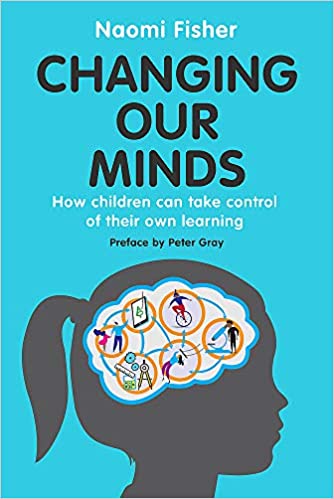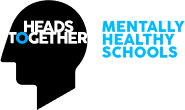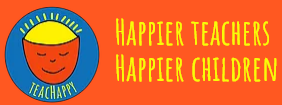Support for Schools to Promote Student Mental Health

There are so many initiatives which schools can get involved with to support students’ mental health and wellbeing. Some of them are listed below. However, there is increasing concern that interventions are only addressing the symptoms rather than the cause of the problems. This is why this page leads with an article by Dr Naomi Fisher, a clinical psychologist who treats children and young people in distress:
“They come for many reasons… For some of them, school itself is causing the distress. Then I’m asked to fix the children. Do some therapy, or maybe some mindfulness, and help them keep going. Build their resilience…
I’ll never be able to meet the need, because what I am offering – therapy – is a way to patch up each individual. It can’t look at the system which is creating this distress.
Improving mental health is about so much more than treating problems when they arise. That’s like treating lung cancer without encouraging people to quit smoking.”
Read the full article here

Flourishing Education
Fabienne Vailes is a UK expert on emotional and mental wellbeing within the education sector. She is the author of The Flourishing Student and creator or the Flourishing Education podcast.
Fabienne runs three courses – ‘Press the Pause Button’, ‘Building Understanding’, and ‘Empowering Change’ – which enable educators and young people (secondary and higher education) to develop the awareness and understanding required to become conscious creators and flourishing lifelong learners who live happy and fulfilled lives. Her courses are based on her peer-reviewed ‘Flourishing Model’ and seven years of active research.

MindUP
Since 2003, MindUP has been helping children globally to develop the mental fitness necessary to thrive in school and throughout their lives.
MindUP is a not-for-profit organisation founded to help children develop the knowledge and tools they need to manage stress, regulate emotions and face the challenges of the 21st century with optimism, resilience and compassion.
It was created in response to the global epidemic of childhood aggression, anxiety, depression and suicide. It was developed by a team of experts focusing on the four pillars of neuroscience, social-emotional learning (SEL), positive psychology and mindful awareness.
MindUP provides the vehicle for whole-child, whole-school, whole-community transformation offering programs including resources and training for educators, administrators, families and adults.

Not Fine in School
Not Fine in School is a parent/carer-led organisation set up in response to the growing number of children and young people who struggle with school anxiety.
They have a guide for professionals which offers tips for school staff in these circumstances.
Many parents find that teachers insist that a child is fine once they are in school. This can be dangerous and untrue. The guide offers a checklist for professionals to use before they make the claim that a child is “fine”, as well as practical suggestions for helping to meet the needs of a child who is struggling to attend school.
They recommend early intervention, with professionals and parents working together, to minimise any impact on education and wellbeing.

Selfology
Selfology is a self-directed psycho-education programme designed by States of Mind that provides young people with knowledge and practices that support a positive sense of self in their everyday life. With topics ranging from mind-body approaches to trauma informed perspectives on depression, the platform provides a therapeutic learning experience that can be accessed by young people within school or at home.
It is also available as an in-depth mental health curriculum that can be facilitated by practitioners, school staff and parents, to provide therapeutic learning environments for groups or individual young people.
Selfology has been designed through in-depth work with over 240 young people in schools and has been developed and iterated over 3 years. The programme has been shown to increase confidence, self esteem and self awareness, while also enabling young people to feel empowered in supporting their wellbeing in the absence of mental health professionals.
“This course for me had a role aimed at finding heroes within ourselves and giving us the push to start living our true potential. This is a necessary course for adolescents in the UK and all over the world.”
Aliyah, 17
Download the Selfology info pdf.
Download the Selfology Curriculum pdf.
Mentally Healthy Schools

The Mentally Healthy Schools website offers advice and resources to help primary school staff understand and promote children’s mental health and wellbeing. They say that:
“A mentally healthy school is one that adopts a whole-school approach to mental health and wellbeing. It is a school that helps children flourish, learn and succeed by providing opportunities for them, and the adults around them, to develop the strengths and coping skills that underpin resilience.
A mentally healthy school sees positive mental health and wellbeing as fundamental to its values, mission and culture. It is a school where child, staff and parent/carer mental health and wellbeing is seen as ‘everybody’s business’.
A whole-school approach involves all parts of the school working together and being committed. It needs partnership working between governors, senior leaders, teachers and all school staff, as well as parents, carers and the wider community.”
n
ThoughtBox

ThoughtBox is helping millions of young people to develop social, emotional and global wellbeing. They are a non-profit organisation helping 1500+ schools (primary and secondary) around the world to deliver a whole school, collaborative approach to learning for life – supporting UK Ofsted requirements for PSHE, SMSC and Global Citizenship.
“Think & Thrive is a ready-to-teach SMSC and PSHE curriculum, designed to cultivate emotional intelligence. This is an interactive learning journey developing essential life skills for long-term emotional wellbeing through the practices of critical thinking, empathy and systems thinking.”
Together we can transform learning and educate young people for their future, not our past”
Growing Healthy Schools

The Visionaries launched their Growing Healthy Schools programme to support schools during and beyond COVID-19 by providing staff with:
- Space for restoration and renewal – increasing motivation and reducing chances of burnout.
- Time to learn with colleagues regarding what’s needed, personally and as a collective, to integrate healthily, into school life from September 2020 and throughout academic year.
- Experiences and training that help staff feel united and equipped to play an active part in stewarding their school community throughout the forthcoming academic year.
“We are tired of the inadequate support school staff receive to resource them for one of the most important jobs in society. That’s why we started the Growing Healthy Schools project, which equips schools to grow a healthy school culture through wellbeing, nature connection and rites of passage experiences.
Here’s a case study about UAE South Bank School in London, who’ve been through the first phase of the project: https://drive.google.com/file/d/1UgVJcorRr5JDGKiU-MEVVXHThXm83VpU/view
The project helps schools to develop healthy relationships, space for reflection and holistic life support for staff AND students.
“Programmes don’t change lives, healthy relationships do” is a phrase we say quite frequently in our team. We’re not about being another intervention… We’re about helping schools to strengthen the way individuals communicate and relate.”

Mental Health First Aid England
The youth arm of Mental Health First Aid England (MHFA) offers courses for anyone who works with, lives with or supports young people aged 8-18. The training helps adults develop the skills and confidence to step in, offer first aid and guide children and young people towards the support they need.
In doing so, they can speed up a young person’s recovery, stop issues from developing into a crisis and ultimately save lives. The MHFA website states:
“Suicide is the second most common cause of death for those aged 5-19 years. Record levels of young people are struggling.
Academic pressure, social media, bullying, poverty, lack of availability of professional mental health support – all have been named by various sources as contributing to this epidemic of poor mental health in our young people.
It’s clear that young people are not getting the support they need. Key figures in a young person’s life – parents, family members, teachers, tutors, carers, youth workers – can often spot when a young person is struggling but may not know how best to help.”
You can sign up to one of MHFA’s half-day, one-day or two-day youth training courses at https://mhfaengland.org/organisations/youth/
Teachappy

Teachappy believes that happiness and wellbeing should be at the heart of education and they give schools the tools to put it there:
Happier teachers teach better and happier pupils learn better. It’s simple, really.
They offer bespoke and high-quality CPD training in schools, for both teaching staff and students. Their positive psychology course for children, The Seeds of Happiness is now online. They’ve also teamed up with Bounce Together and the Carnegie Centre of Excellence for Mental Health to offer a complete wellbeing solution for primary schools.

